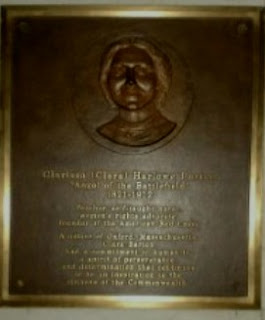Historical Review: The Tuskegee Study of Untreated Syphilis
From
1932 to 1972, the United States Public Health Service conducted a secretive experiment
called “The Tuskegee Study of Untreated Syphilis in the Negro Male.” In 1932, at the beginning of the Study an
effective known treatment for syphilis did not exist. By conducting the study, the U.S. Public
Health Service wanted to investigate the progression and effects of syphilis –
without treatment. The study was
administered at The Tuskegee Institute in Macon County, Alabama. 600 men were recruited to participate in the study. 399 participants already had syphilis and the
remaining 201 did not have syphilis.
All
of the men in the study were African Americans and most were impoverished and
illiterate sharecroppers from Macon County.
The clinical researchers informed the men that they were being treated
for “bad blood.” The researchers never
informed the men that they were not being given adequate treatment for
syphilis. The men were provided with
free meals and rides to medical visits.
The study was intended to last for 6 months but eventually went on for
40 years. In a report regarding the
experiment, The Centers for Disease Control and Prevention stated: “Local
physicians asked to assist with [the] study and not to treat [the] men. Decision was made to follow the men until death.”
In
1945, penicillin became an accepted form of treatment for syphilis. Despite the fact that penicillin was an
available treatment for syphilis, the participants in the Tuskegee experiment
were denied the antibiotic. A Public
Health Service representative is quoted as saying at the time of the study: “So
far, we are keeping the known positive patients from getting treatment.”
In
1966, Peter Buxton, a Public Health Service investigator wrote a letter to the
director of the U.S. division of venereal diseases about the ethical ramifications
of the experiment. Buxton’s concerns
were ignored. Eventually, Buxton
informed Associated Press reporter Jean Heller about The Tuskegee experiment. On July 26, 1972, Heller wrote an article
about the study in The New York Times.
Heller would later be quoted as saying that the study was: “one of the grossest
violations of human rights I can imagine.”
By
1972, the year the study concluded, only 74 of the 600 study participants were
still alive. Of the 399 men who already
had syphilis; 28 died from syphilis; 100 died from other complications; 40 of
their wives were infected with the illness and 19 of their children were born
infected with the illness.
A
1973 class-action lawsuit filed on behalf of the men led to an out-of-court
settlement. The U.S. government paid $10
million dollars to the victims and agreed to provide free medical care to surviving
participants and to surviving family members infected by syphilis. As a result of the decades long deceitful Tuskegee
research study, the U.S. Congress passed the National Research Act in 1974. The Act was designed to prevent the exploitation
of human subjects by medical and scientific researchers.
On
May 16, 1997, President Bill Clinton issued a public apology to the eight
remaining survivors of the experiment during a ceremony at the White
House. During the ceremony, Clinton said:
“The United States government did something that was wrong – deeply,
profoundly, morally wrong. It was an outrage
to our commitment to integrity and equality for all our citizens. To the survivors, to the wives and family
members, the children and the grandchildren, I say what you know: No power on
Earth can give you back the lives lost, the pain suffered, the years of internal
torment and anguish. What was done
cannot be undone. But we can end the
silence. We can stop turning our heads
away. We can look at you in the eye and
finally say on behalf of the American people, what the United States government
did was shameful, and I am sorry… To our African American citizens, I am sorry
that your federal government orchestrated a study so clearly racist.”
For
more information about the Tuskegee Syphilis Study:
‘You’ve
got bad blood’: The horror of the Tuskegee syphilis experiment, by DeNeen L. Brown.
The Washington Post. May 16, 2017.
“Bad
Blood: The Tuskegee Syphilis Experiment,” by James H. Jones.


Comments
Post a Comment